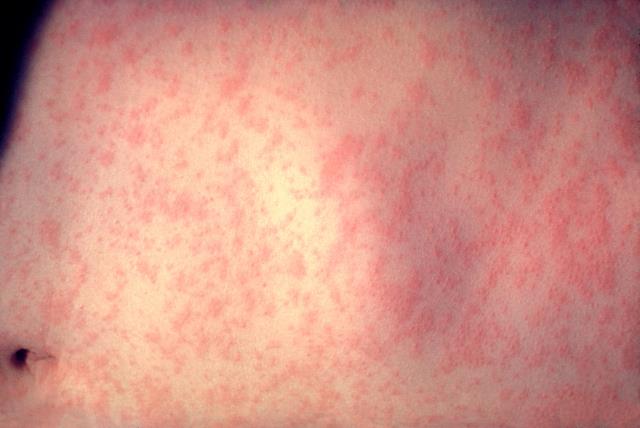Anyone who travelled from Melbourne Airport on the morning of Monday 3 July is asked to watch for symptoms of measles after a case was detected in a returned overseas traveller who transited through while infectious.
The case transited through Melbourne Airport’s international terminal (T2) and Qantas domestic terminal (T1) at Tullamarine on Monday 3 July between 6.20am and 9.50am while travelling to Queensland.
People who were at Melbourne Airport during this time should monitor for symptoms until 21 July 2023. The case also visited several locations in Brisbane while infectious.
Returned travellers who attended one of the Queensland exposure sites should monitor for symptoms for 18 days after exposure. The Queensland Government has issued a list of exposure sites.
Measles is a highly infectious viral illness that spreads easily among those who are not fully vaccinated. Young children and adults with weakened immune systems are the most at risk of serious illness.
People who attended the exposure sites are urged to seek medical care if they develop symptoms, and to wear a mask and call ahead to ensure they can be isolated from others.
The illness usually begins with fever, runny nose, cough and conjunctivitis, followed by a rash. The characteristic maculopapular rash usually begins three to four days after the first symptoms, generally starting on the face and then spreading to the rest of the body.
“We recommend that people who were at any of the exposure sites monitor for symptoms and seek medical attention if they become unwell,” Victoria’s Chief Health Officer Brett Sutton said.
“Recent Victorian cases of measles have been identified in people who are not fully immunised against measles and who have travelled overseas or been in contact with returned overseas travellers. Measles is rare in Australia, thanks to widespread vaccination rates.
“People who are planning to travel overseas should ensure they have received appropriate vaccinations, including MMR vaccine if they don’t have a history of two previous MMR vaccinations,” Professor Sutton added.







